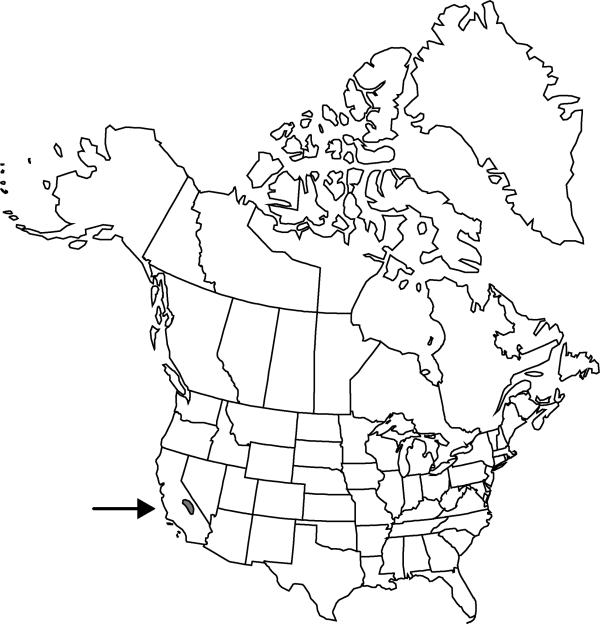Lewisia disepala
in N. L. Britton et al., N. Amer. Fl. 21: 328. 1932.
Taproots gradually ramified distally. Stems erect, 0.5–3 cm. Leaves: basal leaves withering at or soon after anthesis, sessile, blade linear to slightly clavate, terete, 0.8–2 cm, margins entire, apex obtuse; cauline leaves absent. Inflorescences with flowers borne singly; bracts 2–4, proximal in 1 pair, ovate to lanceolate, 2–3 mm, margins entire, apex acute. Flowers sessile to subsessile, disarticulate in fruit; sepals 2, broadly obovate to broadly ovate, 7–8 mm, scarious at anthesis, margins entire, apex rounded or sometimes emarginate; petals 5–8, pale rose-pink, oblanceolate to broadly obovate, 13–18 mm, apex obtuse; stamens 1–15; stigmas 4. Seeds 11–15, 2.8–3.5 mm.
Phenology: Flowering late winter-mid(-late) spring.
Habitat: Granitic formations on rocky, gravelly, or sandy substrate
Elevation: 1900-2600 m
Discussion
Of conservation concern.
Lewisia disepala is known only from scattered localities in the southern Sierra Nevada.
Selected References
None.
